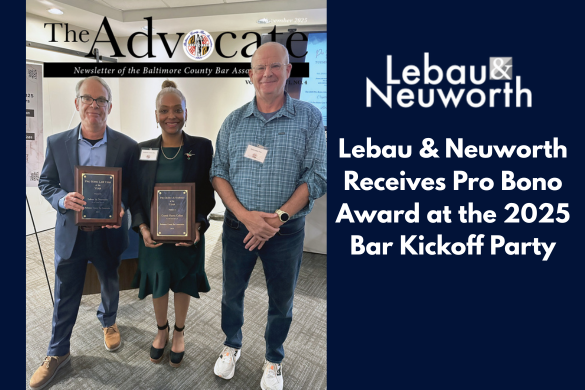Here's a a big win for employees in FLSA collective action cases, regarding discovery litigation and federal overtime laws. The attorneys at Lebau & Neuworth were recently granted a protective order on behalf of their many clients which served to limit the scope of discovery in a Fair Labor Standards Act (“FLSA”) collective action to a representative sample for the entire class of participants. In Jones v. Hoffberger Moving Services LLC, Civil Action No.:13-0535-JKB, the Maryland-based employers sought duplicative, identical discovery from the entire class of 57 opt-in plaintiffs. We then filed a motion with the Court requesting that the defendants’ discovery be limited to a representative sample of the collective action opt-ins. In support, we argued that responding to discovery on behalf of all opt-ins would be unduly burdensome and that such a requirement violated one of the primary purposes of a collective action, lowering the cost of litigation. The Court agreed with us and held that the discovery in this case should be limited to a representative sample of a total of 21 of the opt-in plaintiffs. In support of its decision, the Court noted:
Where, as here, the factual dispute between the parties focuses on an employer’s policies and practices, limiting discovery to a representative sample of Opt-In Plaintiffs is particularly appropriate. Further, in the FLSA context, the Court notes that one of the primary objectives of allowing collective action under § 216(b) is to “lower costs to the plaintiffs through the pooling of resources.” Dorsey v. TGT Consulting, LLC, 88 F. Supp. 2d 670, 689 (D. Md. 2012). The Court therefore feels that it is appropriate to limit written discovery to a representative class of Opt-In Plaintiffs where, as here, this can be done without prejudicing defendants’ ability to prepare a defense to plaintiffs’ claims.
This represents a big win for employees in FLSA collective action cases because it reinforces one of the primary purposes of a FLSA collective action, lowering the costs of litigation, while signaling to employers that they cannot stymie a collective action through duplicative class wide discovery. For more information contact us at: http://lebauneuworth.com/.











